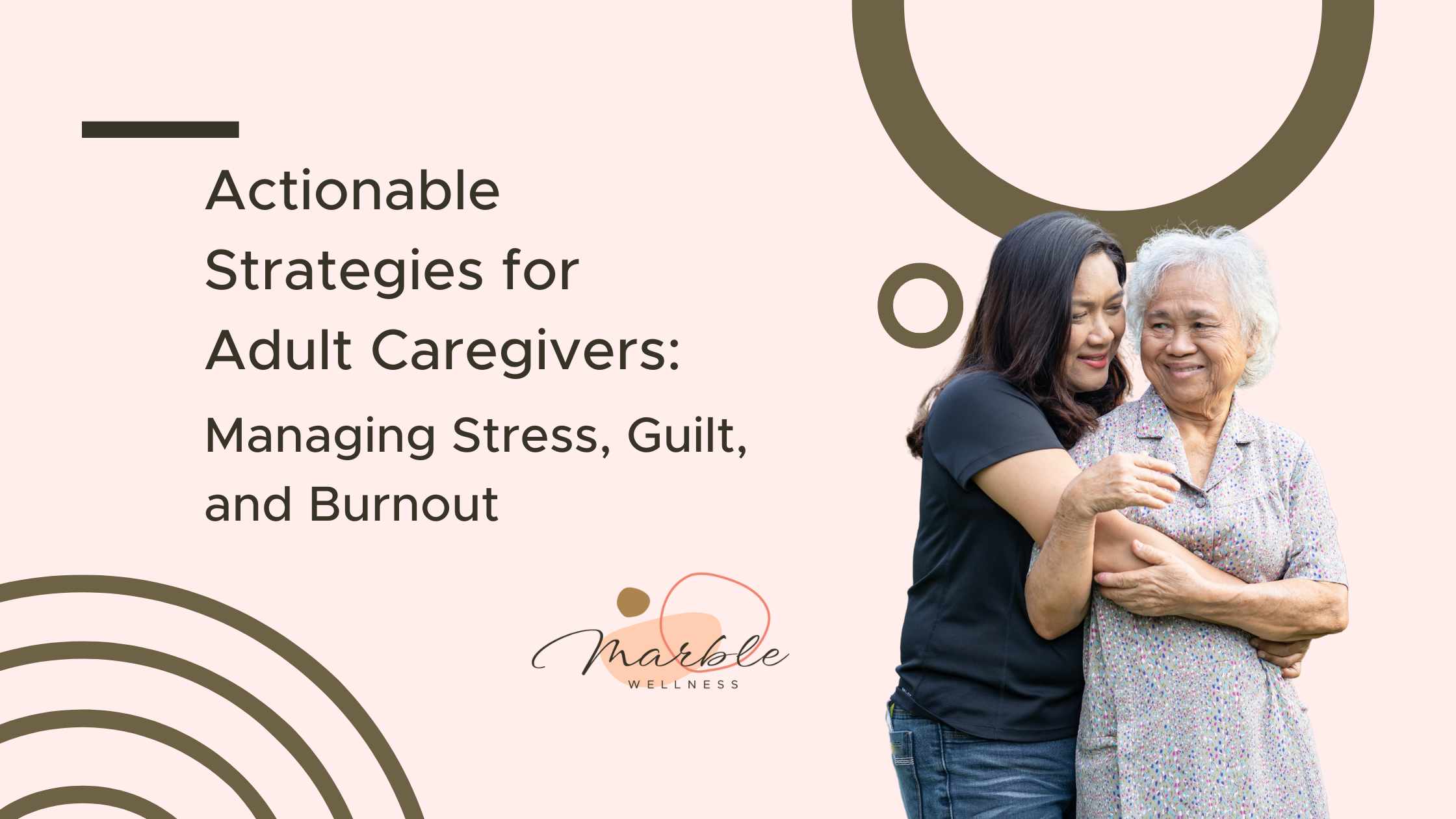Caring for aging parents is a labor of love, but it’s also one of the most demanding roles you’ll ever take on. If you’ve read our previous posts on balancing dual caregiving roles and managing caregiver guilt, you know the emotional and logistical challenges caregivers face. Now, let’s focus on practical, actionable strategies to help you navigate this journey with more confidence and less overwhelm.
Common Challenges Caregivers Face
Before diving into solutions, let’s revisit the most frequent pain points:
- Time constraints from juggling caregiving with parenting, work, or personal life.
- Emotional strain due to guilt, frustration, or family conflicts.
- Logistical hurdles like managing medical appointments, legal documents, or home safety.
- Burnout from chronic stress and neglecting self-care.
These challenges are universal among caregivers—but with the right tools, they can be managed effectively.
Actionable Strategies for Caregivers
1. Build a Sustainable Care Plan
A care plan acts as a roadmap, reducing chaos and helping you prioritize. Here’s how to create one:
- Collaborate with your parent: Discuss their preferences for medical care, living arrangements, and daily routines.
- Include siblings: Assign tasks based on strengths (e.g., one handles finances, another coordinates doctor visits).
- Document everything: Keep a binder with medical records, insurance details, and emergency contacts.
Pro tip: Use apps like CareZone or CaringBridge to share updates and schedules with family members.
2. Leverage Technology to Simplify Tasks
Tech can streamline caregiving and reduce mental load:
- Medication management: Apps like Medisafe send reminders and track doses.
- Health monitoring: Wearables like Apple Watch or FallCall Lite detect falls and monitor heart rate.
- Telehealth: Use virtual visits for routine checkups to save time and energy.
Example: If your parent resists sharing health updates, suggest a shared digital calendar where doctors’ appointments are automatically logged.
3. Master Difficult Conversations
Avoiding tough talks often leads to bigger problems. Use these techniques:
- Timing matters: Bring up sensitive topics (e.g., wills, downsizing) during calm moments, not crises.
- Use “I” statements: Say, “I’m worried about your safety living alone,” instead of, “You need to move.”
- Acknowledge their fears: Validate emotions with phrases like, “I know this is hard to discuss.”
Script for discussing legal documents:
“Mom, I want to make sure your wishes are respected. Can we talk about setting up a power of attorney together?”
4. Delegate and Outsource
You don’t have to do it all:
- Respite care: Hire in-home help for short breaks or use adult day programs.
- Meal delivery: Services like Meals on Wheels reduce cooking stress.
- Professional organizers: Hire experts to help declutter your parent’s home.
Case study: Carla, a caregiver for her mom with Parkinson’s, uses respite care twice a month to recharge. “Those breaks let me return with more patience,” she says.
5. Prioritize Physical and Mental Health
Self-care isn’t selfish—it’s essential.
- Exercise: Even 10-minute walks can reduce stress hormones like cortisol1.
- Sleep hygiene: Stick to a consistent bedtime routine and limit screen use before bed.
- Mindfulness: Apps like Calm or Headspace guide quick meditation sessions.
Burnout prevention tip: Schedule a daily “micro-break” (e.g., 5 minutes of deep breathing) to reset your nervous system.
6. Strengthen Your Support Network
Isolation intensifies stress. Build your village:
- Join a support group: Local groups (or online communities like Caregiver Action Network) offer empathy and practical advice.
- Therapy: A therapist can help you process guilt, set boundaries, and manage family dynamics.
- Family check-ins: Hold monthly meetings to discuss caregiving updates and needs.
Example: The Canadian Cancer Society recommends connecting with others on CancerConnection.ca—adapt this approach by finding caregiver-specific forums.
7. Tackle Legal and Financial Tasks
Avoid future headaches by organizing now:
- Essential documents: Ensure wills, advance directives, and powers of attorney are updated.
- Long-term care insurance: Explore policies to offset future costs.
- Government aid: Research programs like Medicaid or VA benefits for eligible seniors.
Resource: Free templates for care plans and checklists are available through groups like AARP.
8. Reframe Guilt and Celebrate Wins
Guilt often stems from unrealistic expectations. Try these mindset shifts:
- Track small victories: Note moments like “Found a great in-home nurse” or “Mom laughed today.”
- Practice self-compassion: Replace “I’m failing” with “I’m doing my best.”
- Use gratitude: Write down one thing you’re thankful for daily, even if it’s minor.
Therapy insight: Cognitive-behavioral therapy (CBT) techniques can help challenge negative thought patterns.
When to Seek Professional Help for Caregivers
If you’re experiencing:
- Chronic exhaustion that rest doesn’t fix.
- Panic attacks or persistent sadness.
- Resentment toward your parent or family members.
…it’s time to reach out. At Marble Wellness in Ballwin and Lake St. Louis, our therapists specialize in caregiver burnout, family conflict resolution, and stress management. We’ll help you rebuild resilience and find balance.
Your Caregiving Toolkit
- Daily: Use a 5-minute meditation app and take a walk.
- Weekly: Delegate one task and schedule respite care.
- Monthly: Review legal/financial documents and adjust the care plan.
Caregiving is a marathon, not a sprint. By implementing these strategies, you can reduce overwhelm and reclaim moments of joy—both for yourself and your loved one. Remember: Asking for help isn’t a sign of weakness; it’s a step toward sustainable care.
Start Therapy for Caregivers in the St. Louis Area
If you’re feeling stuck, Marble Wellness is here to help. Contact us today to schedule therapy sessions tailored to caregivers in St. Louis, Ballwin, and Lake St. Louis. Together, we’ll create a plan that works for you. Reach out to our Client Care Coordinator today to discuss your therapy options, both in-person and via online therapy in Missouri.
Contact Us!
Learn About Our Group Offerings

Additional Counseling Services at Marble Wellness in St. Louis, MO
Marble Wellness Counseling services are designed to help set you on a path of living a more fulfilled, calm, and happy life. Our St. Louis area therapists have a variety of training backgrounds and areas of expertise. We specialize in anxiety, depression, grief, chronic illness, therapy for men, couples, and maternal overwhelm. Our practice also helps new moms with various postpartum concerns, moms in the thick of parenting, and moms with teens. We can also chat from wherever you are in the state with online therapy in Missouri. No matter where you are in your journey, we are here to help you thrive!



